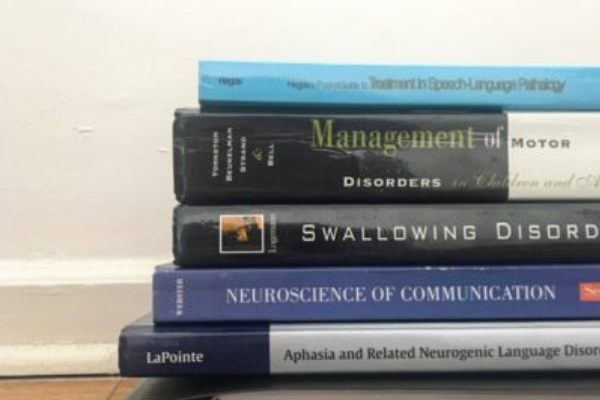 Last September, after a bad day at work– nay, a bad two years– I came home determined to quit my job. I was frustrated, fed up, finished. My work-wife, Anna, had quit a few months back, and what I was once able to tolerate was now making me miserable on a weekly basis. As soon as I put my daughter to bed that evening, I collapsed onto the couch with a generous pour of wine and began constructing a list of all the reasons I should quit my job and all the ways I would save money if I could just quit.
Last September, after a bad day at work– nay, a bad two years– I came home determined to quit my job. I was frustrated, fed up, finished. My work-wife, Anna, had quit a few months back, and what I was once able to tolerate was now making me miserable on a weekly basis. As soon as I put my daughter to bed that evening, I collapsed onto the couch with a generous pour of wine and began constructing a list of all the reasons I should quit my job and all the ways I would save money if I could just quit.
A couple of days later, I approached my husband with list of all the reasons. Knowing this was something I’d been wanting to do for some time, he listened intently, crunched some numbers, encouraged me not to make a hasty decision, and said “…if that’s what you feel is right.” Recognizing my penchant for drama and haste, I decided it best not to quit my job when my emotions were high and my anger pumping.
At a mere 17 years of age, I decided with the earnest and ignorant conviction only a 17-year-old can muster, that my life’s work would be in speech pathology. I chose the career after reading good statistics about job security, pay and seeing it listed on many a “Top 100 Careers” article. I marched off to the University of Kansas with my sights set high. Six years of higher education later, along with countless tests, papers, tears, and one nearly-drop-out-of-college-because-I’m-not-smart-enough-to-do-this freak out, I had my full license in speech pathology and an uncomfortable amount of student debt. Over the next several years, I worked in a variety of settings with a variety of personalities, doing work I took pride in, but lacked passion for.
Quite unfortunately, I spent the last two and a half years working in a particularly toxic environment. From my very first day in this position, I dreamed of the moment when I would walk out for the final time. The job offered some incredible benefits, though, including a top-notch daycare, schedule flexibility, and competitive pay. Leaving wasn’t a feasible option until very recently. Several months after my dramatic declaration that I had to quit ASAP, the right time made itself known in a much less dramatic way. Between part-time work for the hospital, part time-work for the Kansas City Moms Blog, frequent single parenting due to my spouse’s horrifying schedule, seeking medical intervention for infertility, and planning for an impending move, it no longer made sense to work a job that seemed to bring more stress than anything the table. Without drama or terrible haste, I tendered my notice.
After years of fantasizing about my departure, I fully expected to walk away on that final day with a feeling of lightness and freedom. What I didn’t expect was to drive away with tears in my eyes, a pit in my stomach, and the nagging sense that I’d just left my entire identity behind. So caught up in escaping the toxicity of my department, I had unwittingly boiled down my entire career experience to its less-than-ideal parts, focusing only on how badly I wanted to quit without giving enough consideration to how I might feel once it had truly ended. Where I anticipated celebration and relief, I found crushing guilt- about my student loans we were still paying on, about the amount of time I wasted for years obtaining a degree, only to walk away. I found myself suddenly and unexpectedly anxious at the prospect of having to answer the question “What do you do?” in casual conversation. While I have yet to encounter this situation, I worry it will look an awful lot like me clumsily stammering about what I went to school for in a meager attempt to try and hide the fact that I left the career, as if that somehow defines me.
That night I sobbed to my husband about time and money wasted. I apologized profusely for my student debt. Through my tears, I confessed that I felt unexpectedly rudderless — and maybe a bit worthless — because for the first time I could recall, I didn’t have a goal I was working toward. Somewhere along the line, I inadvertently convinced myself that my worth was inextricably enmeshed with my career.
My husband, being the wise man that he is, handed me tissues and a generous pour of wine. He kindly laughed and reminded me that big changes always set me spinning, even when the change is good. He reminded me that that if he hadn’t decided to go back to medical school, I’d have long demolished my debt. That the countless hilarious and heartwarming stories from work and the many dear friendships I’ve made as a result of my time in this career were hardly a waste. That I still have goals, both for myself and for our family and that while they may look different than before, they are no less worthy.
Six weeks after leaving, I’m adjusting to this new normal. I’m still a speech pathologist, just not practicing. I continue to work, albeit in less traditional ways. I have more time to dedicate to new goals in my life, including several fairly major upcoming life-changes and projects. I also have an entire extra drawer in my dresser now that I no longer own a week’s worth of scrubs, so I’d say I made the right choice.
And Anna, if you’re reading, I’ll happily come back to speech pathology should you decide to move back to Kansas City.
















